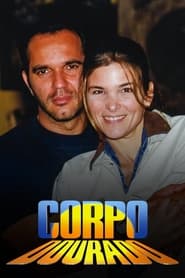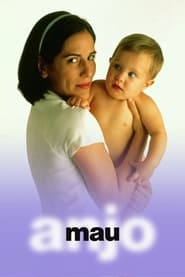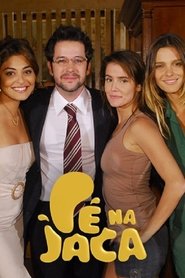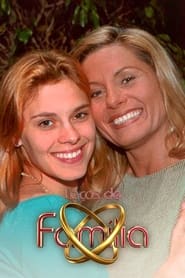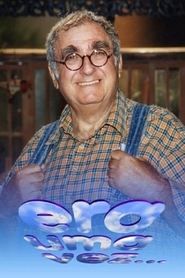Tv Globo TV Series - Page 8
-
Corpo Dourado
1998
star 6Corpo Dourado is a Brazilian soap opera produced by and shown on Rede Globo from 12 January 1998 through 21 August 1998. The 191 chapters were written by Antônio Calmon and directed by Flávio Colatrello Jr, and later Marcos Schetchman. -
Helena's Shadow
2014
star 5Laerte’s obsessive jealousy brings his relationship with Helena to an end on their wedding day. Twenty years later, he meets Luiza, the daughter of his long lost love. The two fall in love and stir up dormant feelings that profoundly affect Helena’s marriage and her relationship with her daughter. Defying everyone, Laerte and Luiza decide to follow their love to the highest bounds, leaving a trail of conflicts and pain along the way. -
Cobras & Lagartos
2006
star 7.6Is it possible that in a world ruled by appearance, there is room for loyalty, ethics, true love, honesty and solidarity? Is it possible, today, when unrelenting consumption is a way of life, to find someone who equates more value to being rather than having? Cobras & Lagartos is an urban tragic comedy, modern and humanist, that deals with two increasingly different worlds: one which values loyalty and solidarity and the other, where the seduction of superfluity and the power of money reign. -
Anjo Mau
1997
star 9Anjo Mau is a Brazilian telenovela that was produced and aired by TV Globo between September 8, 1997 and March 27, 1998, in 173 chapters. Featured Glória Pires, Kadu Moliterno, Maria Padilha, Daniel Dantas, Leonardo Brício, Alessandra Negrini, Mauro Mendonça and Gabriel Braga Nunes in leading roles. -
Pé na Jaca
2006
star 8.1Pé na Jaca is a Brazilian telenovela that was produced and aired by TV Globo from November 20, 2006 and June 15, 2007. Featured Murilo Benício, Juliana Paes, Fernanda Lima, Marcos Pasquim, Betty Lago, Fúlvio Stefanini, Alexandre Schumacher, Carla Marins, Ricardo Tozzi, Fernanda de Freitas, Daniele Suzuki, Rodrigo Lombardi, Bruno Garcia, Flávia Alessandra and Deborah Secco in the lead roles. -
Boogie Oogie
2014
star 7.8In the swing of the 70s, two women fight for the love of the same man without knowing their fates were already intertwined. -
Felicidade
1991
star 7.2Helena falls in love with Álvaro, but they have to fight Débora's obsession with him to stay together. -
Family Ties
2000
star 7A mature and successful woman, Helena becomes involved with Edu, who is twenty years her junior. She battles prejudice in order to live her love, but their romance fizzles out when she realizes that her daughter Camila has also fallen in love with him. Her dilemma grows even worse when she discovers that the girl has leukemia. Helena must disclose the real identity of Camila‘s father in order to try and find a compatible bone marrow donor. In order to save her, she decides to give up her new love and have another baby with her daughter‘s father. -
Agora é Que São Elas
2003
star 6The synopsis was loosely inspired by an argument by Paulo José called Cidade das Formigas. It was based on what happened in the city of Formiga, in Minas Gerais, where women work for large clothing manufacturers in the country. In Formiga Real, women guarantee a large part of their families' livelihood with this work. -
América
2005
star 6.5Sol and Tião are born to different social backgrounds—she to a poor suburban family in Rio, and him to an even poorer family who raised cattle in West São Paulo State. They eventually meet, due to unlikely circumstances, but part again, as she has set as her ultimate priority to reach the United States or bust. While she comes to the U.S. to live as an illegal immigrant, he remains in Brazil and, despite many trials and tribulations, he becomes a successful rodeo cowboy. -
Era uma Vez...
1998
star 7.5Era Uma Vez is a Brazilian telenovela produced and broadcast by Rede Globo in 1998. It was written by Walter Negrão and directed by Jorge Fernando. -
The King of The Cattle
1996
star 7.7In the struggle for land a vicious feud erupts between two men, who commit their families to a war without truce. Over two generations they are moved by love and by hatred in this epic saga of love for the land. -
Sandy & Junior
1999
star 8.5Two high school students have a life of flirting, misadventures and friendship with a group of friends.
